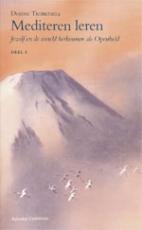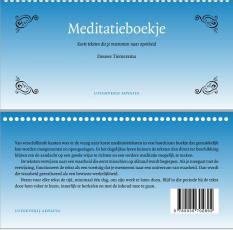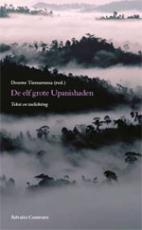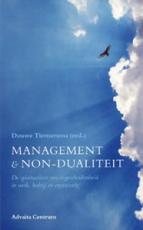Advaita Post #11-14 ---
Volume 11 no.14 (September 16, 2010)
--- So then you're no longer on the level of response, but on that of non-duality --
Dawning enlightenment (Schiermonnikoog, August 2010)
Self Meditation - Part 3: Self reflection
From a talk on May 12, 2010 Gouda
See what that is: your clear consciousness through which you are internally aware of yourself without distance.
Of course, in the West there is also an awareness of reflexive consciousness. They say that it's the point in which people differ from animals. Animals also have consciousness. But people have something extra and that is the reflexive consciousness. Through it they don't completely merge with themselves. Because you are reflexively conscious, you can be critical of yourself, you can say: just look at what you do, and: now just do it somewhat differently. It's also the basis of conscious morality.
The difference with the Eastern approach is that the reflexive movement in the West is not pushed far enough so that a nondual openness arises. There remains the duality of the person who is reflexively aware.
But of course it's good for people to practice reflexivity. Most people don't come to a good reflexivity and remain uncritical in regard to themselves. It would be nice if people would be more self-reflexive, more aware of themselves. To a certain extent that's always the case, but you see the differences. In self-reflexive consciousness you see that nothing is taken for granted any more, that you can go one way or you can go the other. That's the basis of your notion: I'm free to choose. It's all part of the personal situation of people who are by definition self-reflexive. There are always alternatives. You can always say 'no' to an existing condition.
In some schools don't they call that pre-reflexive, in contrast to the reflexive behaviour of animals?
That's a very different use of the word reflexive. You're talking about reflexes. In a reflex movement the nerve impulses are bounced back to the muscles through the spinal cord. This is about the bouncing back or reflection of images in consciousness.
In those schools, isn't also the transpersonal important, in contrast to the ego reactions as reflexes? Isn't that the so called pre-reflexive?
Then you are talking about reflexes in a broad sense, namely the fixed patterns of thinking and feeling of an 'I'-person who gives a fixed response to particular stimuli. Then you define the transpersonal as pre-reflexive in the sense that no established patterns are followed, that behaviour is spontaneous. Still then you must also speak about consciousness, because the difference between the spontaneous and natural reactions of animals is that the human situation is characterized by consciousness. In some schools which strongly emphasize the spontaneous, consciousness is pretty much gone. Then they want to have the innocence of nature back again, but ordinarily that's not possible. We can no longer live like animals.
I have another question about that reflexive consciousness. Many people don't really have it and I see that I have difficulty with that. So in the encounter I have the tendency to resist. But shouldn't you then just step out of the situation? I notice that I become too involved in the struggle.
First go back to watching your own situation, where you have recognized something of the clear awareness of your own consciousness. When you really enter into it, you see that something else happens, that you open up. Then that is somewhat different than what you experience with others just because they display less clarity. No, first let it open up and follow the path of aware insight all the way… Otherwise you get dualistic reactions: no, I don't want that, or that's not for me anymore. Return to the most important, the continuous development of yourself. Leave the rest as it is. The most important thing is to return to yourself as clear being-awareness. If you really do that, continually back, continually back, continually back, to the core in which the clarity is incredibly strong: then you find that yourself and everything becomes completely open. So then you're no longer on the level of reactions, but on that of the non-duality.
Thich Nhat Hanh writes about the Thai boat hijackers who rob Vietnamese boat people, without judging them. He shows that the Thai boat hijackers are also driven by hunger and destruction of their cultural background, like now with the Somali boat hijackers.
Yes, you come to see this background and that mechanism more and more clearly. Everyone is in a situation where he can hardly do anything other than what he does. So you see the limitations and suffering of one group as well as the limitations and suffering of the other group. These things naturally come into the light when you return to the core of your self-being.
And what is the consequence? Seeing the relationship between cause and effect, the mutual dependency and the mutual existence of all is the recognition of non-duality in the world. But how far does the recognition of the non duality of yourself and world go? It should go beyond the state of compassion. Therefore, stay with the most important: turning back to the core of yourself and everything as non-dual openness.
A warm greeting,
Douwe Tiemersma
Er is geen tweeheid
als je ontspannen bent
in zelf-bewustzijn
is dat duidelijk.
Boeken
Douwe schreef en redigeerde gedurende zijn leven boeken. Via onze uitgeverij zijn deze nog verkrijgbaar.



